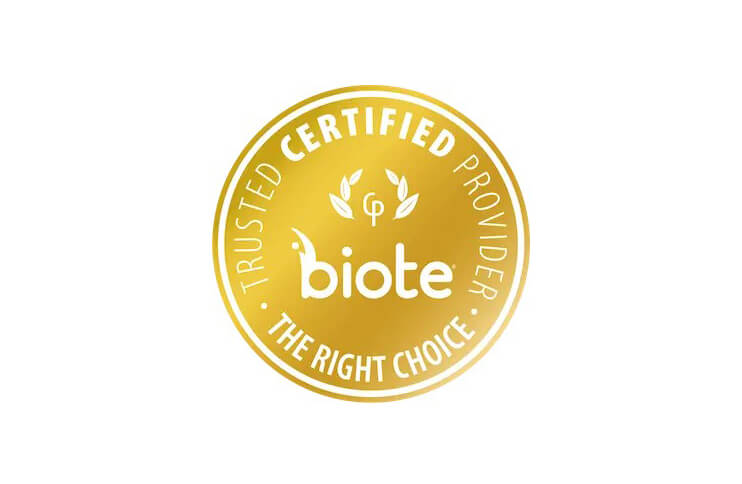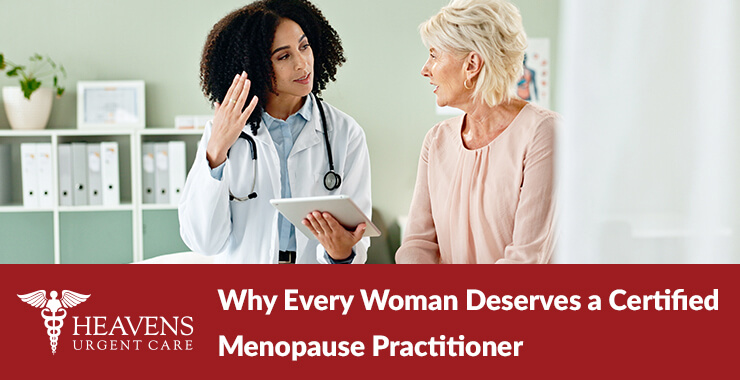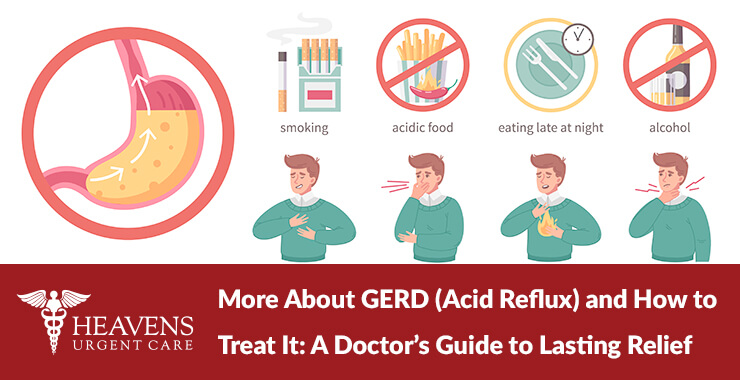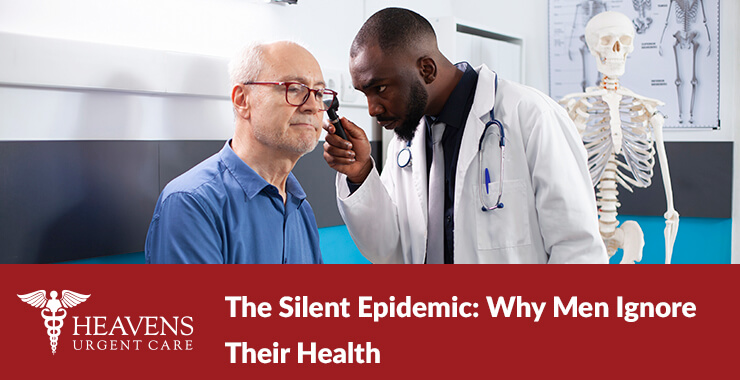Women between ages 40 and 60 experience a time of transition physically, emotionally, and hormonally and it isn’t easy. If you are navigating perimenopause or menopause, having the right guidance from a certified menopause practitioner can make all the difference in how smoothly the transition goes.
So, let’s explore why women, like you, should consider seeing a certified menopause practitioner, what such a specialist does (and how this differs from traditional gynecological care), and how hormone replacement therapy (HRT) can be part of a balanced care plan.
Understanding the Transition: What Is Menopause?
Menopause is defined as the point in time when a woman has not had a menstrual period for 12 consecutive months. Most women reach menopause between ages 45 and 55.
The years leading up to menopause known as perimenopause may begin in a woman’s early 40s. This time is marked by fluctuations in hormone levels that lead to a wide range of symptoms.
FACT: Each day, approximately 6,000 women in the United States reach menopause.
During this transition, the body’s production of estrogen and progesterone declines, and the changes that follow can affect many systems in the body.
The impact can include hot flashes, night sweats, mood changes, vaginal and bladder changes, sleep problems, bone-density decline, heart-health risk increases, and more. This is why specialized care becomes not just helpful, but often essential.

What is a Certified Menopause Practitioner?
A certified menopause practitioner is a healthcare provider typically a physician, nurse-practitioner, or physician-assistant who has undergone additional training specifically in menopause and midlife women’s health.
These practitioners understand the full spectrum of menopausal transition, including hormonal changes, symptom patterns, co-existing medical conditions (like osteoporosis or cardiovascular disease), and advanced treatment options including HRT, lifestyle intervention, and non-hormonal therapies.
The Difference Between a Certified Menopause Practitioner and a Gynecologist
While gynecologists are extremely skilled in women’s reproductive health, surgeries, and general management of gynecologic conditions, they are not always specifically trained in the detailed complexities of menopause management. A menopause practitioner has undergone additional training and rigorous testing to become certified.
Here are five distinctions for you to be aware of:
- Focused expertise: A certified menopause practitioner invests time in understanding menopause-specific issues like hormone replacement timing, types of HRT, bone-health strategies in this age group, and tailored care for women with complex medical histories.
- Comprehensive mid-life care: Menopause practitioners often take a holistic view across bone health, cardiovascular health, cognitive/brain health, genitourinary changes, sexual health, mood, sleep, and metabolic shifts.
- Tailored HRT protocols and monitoring: Because they specialize in the hormonal transition, these providers can create personalized HRT plans (type of hormone, route, dosage, monitoring frequency) rather than simply prescribing basic hormone therapy.
- Preventive and proactive mindset: A certified menopause practitioner emphasizes screening for mid-life health issues like osteoporosis, heart disease, and cognitive decline. They also take a proactive stance rather than relying on reactive symptom-management.
- Ongoing support for the transition phase: They also understand that perimenopause and menopause are phases, not events, and will provide extended follow-up, adjustment of treatments, and support for life changes that accompany a shift in hormones.
For women going through perimenopause or menopause, especially for those experiencing difficult symptoms, having a practitioner dedicated to this transition can mean more nuanced care, fewer trial-and-error treatment changes, and a more informed, proactive approach.
FACT: Half of all women report experiencing menopausal symptoms for at least four months before getting an assessment by a healthcare provider, and 20% dealt with unmanaged symptoms for a full year. Source: The State of Menopause
This is where Dr. Jason Heavens comes in. He is a revered, certified menopause practitioner and his Tempe medical office is currently welcoming new patients.
You don’t need to wait to get help managing and overcoming symptoms like vaginal dryness, mood swings, low libido, painful intercourse, hot flashes, and more. Call Dr. Heavens office today at 623-444-2734 to learn more.
Common Symptoms of Menopause
Here is a simple chart of common symptoms of menopause, why they happen, and possible solutions:
| Symptom | Why It Happens | Possible Soultions |
|---|---|---|
| Hot flashes/night sweats | Declining estrogen disrupts the body’s temperature | Hormone therapy, lifestyle strategies |
| Vaginal dryness | Lower estrogen = thinning tissues/less lubrication | Vaginal estrogen, HRT, pelvic floor work |
| Sleep problems/insomnia | Hormone fluctuations, altered circadian rhythm | Sleep hygiene, HRT, stress-reduction |
| Mood swings/anxiety/brain fog | Hormonal transitions + life-stage stressors + sleep loss | Lifestyle support, counseling, HRT |
| Bone density decline/osteoporosis | Estrogen protects bone; a decline accelerates loss | Resistance exercises, calcium/Vitamin D, HRT |
| Irregular periods/heavy bleeding | Fluctuating hormones during perimenopause phase | Gynecologic evaluation, possible hormone regulation |
| Cardiovascular risk increase | Loss of estrogen’s protective effects | Heart-healthy lifestyle, screening |
FACT: A hot flash may have no clear trigger, but can also be caused by alcohol, hot drinks, caffeine, spicy foods, smoking, or room temperature. They can be as mild as feeling flushed or severe enough to wake you from a sound sleep also known as night sweats. Most hot flashes last 30 seconds to five minutes.
What to Expect from a Menopause Practitioner Visit
When you see a certified menopause practitioner, you can expect a comprehensive consultation that covers:
- A detailed history: When did your periods become irregular? When did symptoms start? What is your medical history (bones, heart, cancers, clotting, etc.)?
- A physical examination with attention to cardiovascular, musculoskeletal, and genitourinary health.
- A targeted assessment of menopausal symptoms, including vasomotor, genitourinary, sleep/mood, bone/heart risk, and lifestyle factors.
- Use of screening tools: bone-density tests, cardiovascular risk labs, hormone level assessments when relevant, and risk-stratification for HRT.
- A discussion of treatment options: including lifestyle support (exercise, diet, sleep, stress), non-hormonal therapies, and HRT including its types, benefits, risks.
- A tailored plan: This may include starting HRT or adjusting existing therapies, monitoring schedules, lifestyle changes, and follow-up visits to assess response.
- Ongoing care coordination: The practitioner often works closely with your primary care physician, cardiologist, endocrinologist or others as needed, to optimize mid-life health, not just menopausal symptoms.
The benefit of working with this kind of specialist is their deep understanding of this transition time and how to align symptom relief with long-term health strategies.

Hormone Replacement Therapy (HRT): What You Should Know
Hormone replacement therapy (HRT) remains the most effective treatment for the vasomotor symptoms like hot flashes, night sweats, vaginal dryness, and urinary symptoms associated with menopause.
HRT works by replenishing the hormones (primarily estrogen, and often progesterone for women with a uterus) that decrease during menopause. There are multiple forms of HRT:
- Systemic estrogen therapy: pills, patches, gels, sprays that deliver estrogen throughout the body.
- Combined estrogen-progestogen therapy: for women who still have a uterus, to protect against endometrial hyperplasia.
- Vaginal/local estrogen therapy: creams, rings, tablets that deliver low-dose estrogen directly to vaginal/urinary tissues.
- Bioidentical hormone therapy: hormones that are molecularly identical to human hormones. Some are FDA-approved, while compounded “bioidentical” preparations may not be.
- Non-hormonal adjuncts: for women who cannot or choose not to use HRT, alternative treatments may help.
Why You Should See a Certified Practitioner for HRT
Because HRT is not one-size-fits-all, a certified menopause practitioner can help you understand whether you are a candidate for HRT by considering your age, time since menopause, health history, and risks.
Additionally, a certified menopause practitioner can help you determine the optimal type and route of hormone therapy: patch vs pill vs local, estrogen alone vs combined treatments, along with the appropriate dose and how long to continue therapy. For example, current guidance suggests using HRT until at least the average age of menopause unless there are contraindications.
A certified practitioner can also closely monitor your therapy over time for benefits and risks like breast health, cardiovascular health, bone density, and endometrium in women with a uterus). This is especially important if you have special medical circumstances like a history of breast cancer, clotting disorder, or cardiovascular disease… this makes an HRT decision more complex.
Lifestyle, nutrition, bone health, cardiovascular health, mood and sleep aspects that go hand-in-hand with hormone therapy and aging in mid-life should also be closely monitored by the right type of medical practitioner.
If you are a woman navigating perimenopause or menopause and want a personalized, evidence-based approach, consider scheduling a consultation with Dr Jason Heavens.
Dr. Heavens is a certified hormone replacement provider who specializes in women’s mid-life health, offering tailored HRT protocols and integrative support to help you manage symptoms, protect long-term bone and heart health, and regain your quality of life.

Common Concerns and Myths About HRT
Q: Is HRT safe?
A: Historically, the Women’s Health Initiative (WHI) study raised concerns about HRT’s association with breast cancer or cardiovascular risk in older women. However, newer guidelines and research show that for many women under age 60, or within 10 years of menopause onset, the benefits often outweigh the risks when managed by a knowledgeable provider. It is critical to have shared decision-making with your provider, while considering your personal risk profile.
Q: Are bioidentical hormones completely safe?
A: While bioidentical hormones can be effective, the term “bioidentical” is not a guarantee of safety or superiority. Some compounded preparations are not FDA-approved and may lack rigorous dosing controls. A certified menopause practitioner can distinguish between FDA-approved hormone therapy and less-regulated compounded options, guiding you safely.
Q: Do I need HRT? Can’t I just wait it out?
A: For many women, symptoms improve over time. But moderate-to-severe symptoms, especially hot flashes, sleep disruption, and vaginal/urinary changes can persist significantly and contribute to bone loss, cardiovascular changes, mood disorders, and quality-of-life decline. Working with a practitioner early in the transition can reduce long-term risk and help you feel more like yourself.
Q: Will HRT make me gain weight or cause breast cancer?
A: Weight gain during mid-life often relates to hormonal changes, aging and lifestyle shifts, not just HRT. Regarding breast cancer, data indicate that HRT’s risk varies by age at initiation, duration, type of hormone, and individual risk factors. A certified menopause practitioner will tailor therapy to minimize risks and optimize benefits.
Building a Mid-Life Health Plan: Beyond Hormones
While hormonal care is central, your menopause transition is about the whole you. A certified menopause practitioner will help you integrate all necessary aspects of a happy, healthy aging life. The goal is not just absence of symptoms but thriving in mid-life. Feeling well, having energy, sleep, mood, intimacy, and confidence are all important to women as they age.
Lifestyle changes: Balanced nutrition, physical activity (especially weight-bearing exercise for bone health), sleep hygiene, stress reduction, and limiting alcohol/caffeine if they trigger symptoms.
Bone health: Monitoring of bone density, calcium and vitamin D supplementation if needed, and exercise to strengthen bones.
Cardiovascular health: Regular screening of blood pressure, cholesterol, glucose, and discussion of lifestyle habits like smoking cessation, a healthy diet, and appropriate physical activities.
Cognitive and mood support: Hormonal shifts may influence mood, cognition like brain fog, sleep, and emotional health. A practitioner will help monitor and treat these shifts.
Genitourinary care: Vaginal health, urinary symptoms, and sexual wellness can all change in menopause and deserve dedicated attention.
Choosing the Right Practitioner and What to Ask
When selecting a certified menopause practitioner, consider these questions:
Do they hold certification in menopause or mid-life women’s health? MSCP stands for Menopause Society Certified Practitioner. An MSCP is a healthcare provider with a special interest in menopause care who has taken a certification exam after many hours of study on the current data we have on menopause care and treatment.
Do they offer a comprehensive initial evaluation (hormones, bone, cardiovascular, sleep/mood, lifestyle) or just a quick visit for hot flashes?
Are they comfortable discussing all forms of HRT (systemic estrogen, combined therapy, local estrogen, patches/gels/tablets) and non-hormonal treatments?
Do they provide a long-term plan, not just a one-time prescription: meaning follow-up, adjustment of dose, and preventive health screening?
Do they coordinate with your other providers (primary care, cardiologist, endocrinologist) to provide holistic care?
Are they open to lifestyle and integrative strategies like exercise, diet, sleep, and stress management alongside hormonal care?
The menopausal transition is a natural phase of every woman’s life but for many, it comes with significant and challenging changes. Having a dedicated, certified menopause practitioner by your side means you are treating the transition not as a momentary inconvenience but as a vital chapter of your long-term health.
Through expert care, tailored treatment including HRT, when appropriate, and proactive lifestyle strategies, you can navigate midlife with confidence, vitality, and self-care at the forefront.
If you are between ages 40 and 60, noticing symptoms like hot flashes, sleep troubles, mood changes, or even just feeling like things aren’t quite the same and you want a trusted partner in this journey consider reaching out for a comprehensive consultation.
Dr. Heavens’ new practice located in Tempe, is accepting new patients who are looking for a personalized approach to health and wellness. From hormone balancing to an active and healthy approach to aging, MDVIP is your first and only stop for a partnership in your wellbeing!







